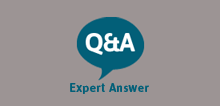Are legal highs safe?
‘Legal high’ is slightly misleading because nowadays most of these drugs are restricted in one way or the other. The reason for this is that they can cause SERIOUS damage when used in a way that's harmful, and even if you’re using them the safest way possible to be honest. At the end of the day, they’re still substances that cause a reaction within your body. So, if you’re on them - you should know what they’re capable of. We’re here to break it down for you.

What are legal high drugs?
Legal highs are substances that have similar effects to illegal drugs. They can be herbal blends like salvia which gives users a quick LSD-type experience. Or they can be synthetic drugs a.k.a chemical based drugs, such as synthetic cannabinoids. These are made to mimic stimulants like MDMA, amphetamines or cocaine. But this doesn’t make legal highs safe.
Even though they are, in some ways, legal, that doesn’t mean their effects are weaker than other street drugs. Not only can effects be potent and cause users to hallucinate and rush, but legal highs can also be highly addictive and have long term consequences.
What’s the law?
In May 2016, the Psychoactive Substances Act came into force. The act is a blanket ban on legal highs and criminalises the production, sale, supply and distribution of legal highs. This doesn’t replace the Misuse of Drugs Act, but it does make it an offence to produce or supply legal highs (not including nicotine, alcohol and caffeine). Offenders could face up to seven years in prison under the Psychoactive Substances Act. Keep in mind, these laws only make distribution illegal, not possession.
Are legal highs safe?
Onto the all important question: Are legal highs safe? Hate to burst your bubble, but unfortunately, they’re not. These drugs often haven’t been tested for human consumption so users are effectively human guinea pigs. Just like illegal drugs, legal highs are not regulated. So, when you buy legal highs, you don’t know what’s in the smoking mixtures or what the withdrawal symptoms will be like.
Because the chemical compositions of legal high drugs drugs are continually changing, you never know what you’re getting. So your last trip on a synthetic legal high might have been fine, but that ‘version’ of the drug might have since been banned. The next time you buy legal highs may be completely different as you’re experimenting with a brand new substance.
Donna* recounted her story to The Mix of the time she ended up in the hospital because of an M-CAT imitator. Her legal high of choice became illegal, so she decided to find another one with similar effects. Turns out, it was a stimulant that left her heaving on the bathroom floor for hours. So, when you’re taking a legal high, even if it claims to have the same effects as another, you never truly know what’s going into your body.
What are the health implications of taking legal highs?
How long is a line of cocaine? These synthetic substances are so new, and so untested, that it’s impossible to say exactly what the health implications are. But there are some common patterns.
“It’s the impact these chemicals have on people’s psychological health that I find worrying,” says Dr David Caldicott, who works as an emergency doctor at Nevill Hall hospital in Wales and specialises in illicit drug use.
Other potential concerns are changes in blood pressure and problems breathing. Donna* also made it clear that dehydration is a serious concern, especially if you mix the high with alcohol.
How can I protect my health when I’m taking legal highs?
Dr Caldicott says that if you are going to take legal highs, you should follow this advice:
- Don’t mix your drugs – especially with alcohol.
- Ideally don’t use a drug you haven’t tried before.
- Don’t take legal highs if you have a history of mental illness.
- If you take a legal high and end up in hospital, try and bring a sample of what you’ve taken to give to medical staff.
- In a similar vein, make sure you have a way of contacting your friends if something goes wrong. In Donna’s* case, being able to text her friend who then called an ambulance literally saved her life.
“Caring for a patient who’s taken an unknown legal high is the medical and toxicology equivalent of winging it,” says Dr Caldicott. Even though Dr Caldicott is a specialist, he admits treating patients who have taken an unknown substance is tricky.
So, if ‘legal highs safe’ is a myth, why are some of them still legal?
Synthetic legal highs have a very similar chemical makeup to illegal drugs. But brainiac chemists tweak the compounds and make tiny variations so they’re not covered by the drugs act. And as soon as the government catches up with one particular compound, the chemists get to work on creating a new one; It’s usually similar enough to create the same sort of effect, but chemically different enough to be legal. Talk about a balancing act.
You can see why dealers continue to do this through Donna’s* story. People are desperate for a high, so if you find a way to make it legal – they’ll take it. In Donna’s* case, she used to buy legal highs as a way to have fun while avoiding any legal repercussions. Once her first choice was taken away, she went looking for an alternative. If we’re being honest, it’s all about supply and demand with these things.
James Brokenshire, minister for crime prevention, says: “The legal highs market is changing. Unscrupulous drug dealers constantly try to get around the law by peddling chemicals, which are often harmful, to young people.”
The government tries to keep up with all these new ‘brands’ of legal highs, and from April 2010 made a lot of them illegal. But suppliers are speedy at inventing these different, but similar, chemicals to replace them, always staying one step ahead of the law. The only real way to stop people taking them is for them to have a bad experience trip. For example, Donna* is now completely drug-free and even regrets her time doing them, saying that she was stupid to believe that nothing would happen to her. But if they’re suffering from addiction, even that might not make a difference. To find out how to help someone in that position, click here.
*Name has been changed
Next Steps
- FRANK offers friendly, confidential advice on all things drugs-related. Call now on 0300 123 6600
- Chat about this subject on our Discussion Boards.
By Nishika Melwani
Updated on 09-Sep-2021
No featured article














